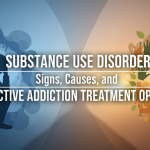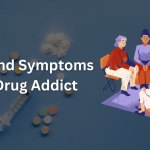Millions of people in the United States use prescription drugs to manage medical or mental health conditions. Some commonly prescribed medications carry the risk of abuse and addiction.
One addictive prescription medication is a drug called Ativan (lorazepam). Ativan is a benzodiazepine drug. People take it to manage anxiety, insomnia, and other conditions.
People who abuse Ativan may develop physical dependence on it. People with Ativan addiction typically require intensive treatment to stop taking it. Many require ongoing support to prevent relapse.
This article will explore how long Ativan remains in your system after you stop taking it. You will learn:
- How Ativan works
- The effects and risks of Ativan abuse
- How long Ativan stays in your system
- The amount of time Ativan can be detected on a drug test
- Common Ativan withdrawal symptoms
- Where to find addiction treatment and recovery support
If you or someone you love struggles with Ativan abuse, you are not alone. Contact the treatment specialists at Solutions Healthcare to explore our rehab and support programs. You may reach out with questions or to schedule an intake appointment.
What is Ativan?
Ativan is the brand name for a medication called lorazepam. It belongs to a class of drugs called benzodiazepines. Ativan and other benzodiazepines have a high risk of abuse and addiction.
Doctors may prescribe Ativan to help patients manage several conditions, including:
- Anxiety disorder
- Seizures
- Insomnia
- Alcohol withdrawal
People who misuse Ativan may develop tolerance or physical dependence. Examples of Ativan misuse include:
- Taking larger doses of Ativan than prescribed
- Taking Ativan more frequently than prescribed
- Using Ativan for a longer period than prescribed
- Ingesting Ativan differently than prescribed
- Taking Ativan recreationally (without a prescription)
Doctors may prescribe Ativan only for short-term use to reduce the risk of addiction. However, people may develop symptoms of addiction, even when using it as prescribed.
The Effects and Risks of Ativan Abuse
Ativan is one of the most potent prescription benzodiazepines available. People can develop Ativan addiction after using it for short periods. People may develop addiction quickly, even if they do not have a history of substance abuse or other risk factors.
Addiction is one of the most significant risks of abusing Ativan. People who become addicted to Ativan typically cannot choose to stop taking it because their bodies need it to function.
Other potential side effects of Ativan abuse include:
- Headaches
- Tremors
- Sweating
- Loss of interest in hobbies, work, and other activities
- Dizziness
- Loss of appetite
- Isolation
- Hallucinations
- Nausea and vomiting
- Excessive sleepiness
- Losing consciousness or passing out
People who abuse Ativan may do risky or illegal things to get more of the drug. They may exhibit significant changes in their appearance, mood, and behavior.
People who develop Ativan dependence typically require intensive medical and mental health treatment to stop using it. Contact the Solutions Healthcare team to explore your treatment options or to schedule an intake appointment.
100% Confidential Support is Available 24/7
No matter what you’re going through, you’re not alone. Our dedicated team is here to provide a safe, judgment-free space where you can talk openly and honestly. Whether you need emotional support, resources, or just someone to listen.
We’re here for you—completely confidential and always respectful of your privacy. Call us today!
How Long Does Ativan Stay in Your System?
Ativan works by slowing central nervous system (CNS) activity. The effects of Ativan usually begin within 15 to 30 minutes of taking it and peak after two hours.
The body begins metabolizing it as soon as it reaches the bloodstream. However, the effects of the drugs can last much longer.
Ativan’s half-life is about 12 hours. The half-life of Ativan refers to how long it takes the body to clear half of the drug. This means it takes about 12 hours to metabolize half of the medication.
However, several factors can affect how long Ativan remains in the body. These factors include:
- Metabolism and general health
- Weight and body composition
- Age
- Ativan dosage
- How long a person has been taking it
- Co-occurring mental health conditions
People with Ativan dependence may experience withdrawal symptoms when they stop taking it. Common Ativan withdrawal symptoms include:
- Excessive sweating
- Headaches
- Seizures
- Abdominal cramping
- Anxiety
- Panic attacks
- Weight loss
- Nausea
- Elevated heart rate
- Confusion
- Poor concentration
Withdrawal symptoms may last weeks or longer. Symptoms may continue long after the body eliminates all Ativan from the system.
People going through withdrawal are at risk of relapse. It is critical to have support, supervision, and access to medical treatment throughout detox.
Contact Solutions Healthcare
Battling with Drug and Alcohol Addition? Remember, you are not alone and we are here to help you!
How Long Can Drug Tests Detect Ativan?
Drug screening tests can detect Ativan in various bodily systems. Many factors can affect drug test detection times and how long it takes for Ativan to be eliminated from the body completely. However, drug screening tests typically have a standard detection window.
Here is an overview of how long Ativan can be detected on a drug test.
Urine tests
Urine testing is the most common form of drug screening because it is inexpensive and non-invasive. These tests may detect Ativan in urine for up to six days after your last dose.
Blood tests
Blood testing may detect Ativan for up to three days after your last dose. The detection window may be even longer for people who use large doses of Ativan.
Saliva tests
Saliva testing may detect Ativan for around eight hours after a person’s last dose.
Hair tests
Hair testing has the longest detection window. This form of testing can detect Ativan for up to 90 days after a person’s last dose.
Worrying about passing a drug test may be a sign you need substance abuse treatment. Find the support and treatment you need at Solutions Healthcare. Contact our treatment specialists to explore our programs or to schedule an intake assessment.
References
- U.S. Food and Drug Administration (FDA): Ativan (lorazepam)
- National Institute of Health (NIH): Lorazepam
- The Journal of Addictions Nursing: Ativan (Lorazepam)






















